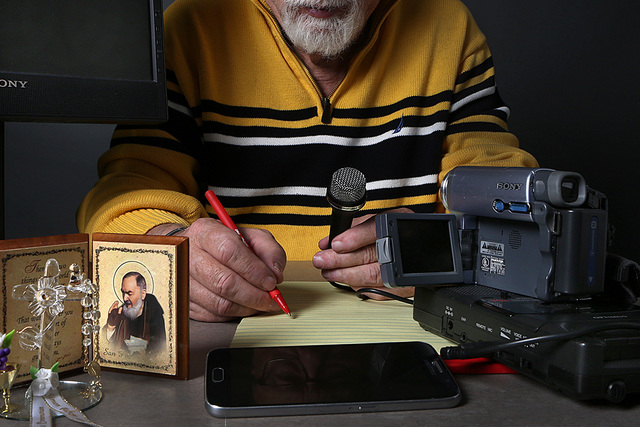Who are you? Your kids probably want to know

Our children, the offspring of baby boomers, deserve it.
So do our children’s children.
Actually, I suspect entire families would cherish it — having a better understanding of how we boomers got to this time and place in our lives.
Surely they’d appreciate more awareness into why we did what we did, why we’ve said what we’ve said.
Yes, providing first person documentation of how we became who we are — how people and places and fears and dreams and loves and deaths affected us — will give them an insight into their loved ones that many of us never got.
And it may give them a better sense of what to do, and what not to do, in their own lives.
No generation in the twilight of life has had so many easy to afford tools with which to share experience.
Leaving written, spoken and visual history in the digital age couldn’t be easier. A simple cellphone today can make you your own librarian.
If you want to share part of the music, videos, writings, paintings or speeches that helped you look at life differently, you can even insert them for context without much fuss.
As I lay recently in a hospital bed thinking death might not be far away — it turned out I just had a ministroke — I thought about how little I had really shared with my kids about what made me tick.
Sure, I’ve shared a lot of highlights about my life — kind of like repeatedly editing a minute’s worth of touchdowns from football games for them to view — but they seldom got to know the real why, say, I ended up in the Vietnam War.
It seemed stupid to say that I volunteered for the Army because the woman I proposed to didn’t want to marry me. That I figured if I lived through Nam, then I knew God wanted me to go on living.
OK, so it is stupid to put your life at risk when a romance doesn’t work out, but it’s who I am — a man too often controlled by his emotions.
When I told my children to always weigh their decisions rationally, to not let emotions be decisive, they may have taken it more to heart if I shared that Nam story. Maybe it’s not too late for their children to get something out of it now.
There has been much emphasis of late on genealogy, and that’s fine. But lineage only opens a small window on the understanding of a family.
That each of us has been affected to act as we do — by the who, what, when, where and why (the 5 Ws) of our lives — is crucial to that understanding.
We don’t need the way with words of William Faulkner or Toni Morrison to share the 5 Ws of our lives. Whether leaving sound, video or print to our families, it might be easiest to go just decade by decade.
In each of the six decades you’ve been alive, for instance, who’s made a major impact on your life? Is there still a song or a speech or a book or play that you couldn’t get out of your head? Why?
Were there issues in those time periods that moved you to action or tears or anger? What happened that brought you joy, that possibly made you think the world was going to end? When did you realize all your dreams wouldn’t come true?
When life happened all around you and to you — for instance, civil rights protests, the landing on the moon, a wedding, a birth, a divorce — what did it mean to you? How did you handle it? Did it change you? How?
As you look back on your life, did you do what you wanted to do? Would you change something? Why?
Through the documentation of our lives — just spend an hour or two a day on it — we will get to know ourselves better.
And that means our children will get to know us better, too.
We owe them that.
After all, they didn’t ask to come into this life.
We gave it to them.
Paul Harasim’s column runs Sunday and Tuesday in the Nevada section and Monday in the Health section. Contact him at pharasim@reviewjournal.com or 702-387-5273. Follow @paulharasim on Twitter.